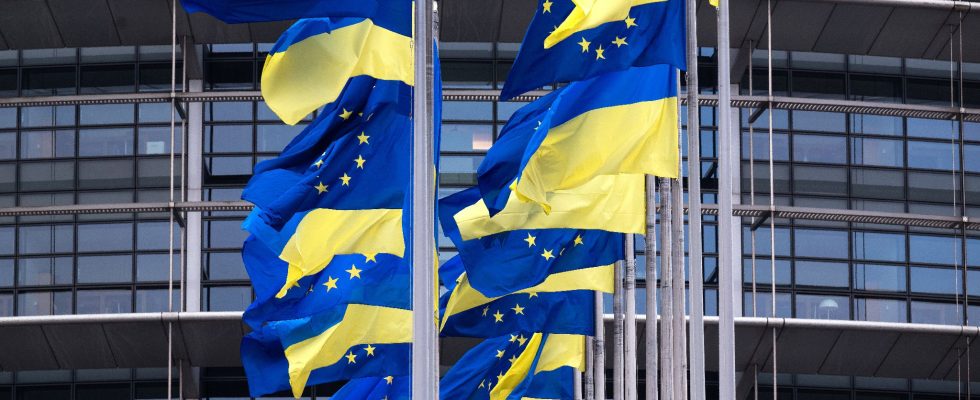“Do you think there will be a generation of those in 2022?” a student in the German university town of Göttingen asked me recently. In other words, a set of Europeans for whom the full-scale war in Ukraine, started by the invasion of Russia in February 2022, shapes the way they think and act politically for the rest of their lives. Here is a really important question.
Today’s Europe has been shaped by four key political generations: those of 1914 (with their life-changing experience of the First World War), those of 1939 (the Second World War), the sixty-eight (1968, in all its different manifestations) and those of 1989 (the fall of the Berlin Wall and the end of the Cold War).
In each case, the formative moment occurs early in adult life, so there is a significant amount of time before the relevant cohort comes to power. Sixty-eighters, such as Joschka Fischer in Germany, Jack Straw in the United Kingdom and Lionel Jospin in France, played a leading role in European politics until the 2000s. Those of 1989, such as Czech Prime Minister Petr Fiala and German Economy Minister Robert Habeck are now at the head of Europe.
A few years ago, our ‘Stories from Europe’ project at Oxford University looked at formative moments for young Europeans today. At the time, there seemed to be no single moment comparable to 1989, 1968 or the two world wars. Instead, we found a common experience, that of freedom of movement across Europe, and a dominant concern: climate change. There were, however, specific moments for geographical subgroups: the wars in the former Yugoslavia for southeastern Europeans; the eurozone crisis for young Greeks, Spaniards and Portuguese; Brexit for the British and the Irish.
Anti-Americanism of the Slovaks
Surely Putin’s massive invasion of Ukraine must galvanize a new pan-European political generation. If Europe’s greatest war since 1945 doesn’t, what will? People often react enthusiastically to this idea. I too would like a new political generation, driven by a sense of common purpose, to take the European project forward. But neither opinion polls nor my conversations with young Europeans offer strong evidence that it already exists.
In Ukraine, I met many young people for whom the war will clearly be the defining moment of their political life: a cross between 1939 and 1989. In Poland and Estonia, I saw a similar effect, although less marked. However, it is much less visible in Western Europe. Here, compassion for Ukraine is strong, reinforced by personal encounters with Ukrainian refugees, but the war has become one hot topic among many.
There are big differences in attitude, even between the Central and Eastern European countries closest to the war zone. In a recent poll conducted for the think tank Globsec, about a third of Bulgarians and Slovaks polled said the West was primarily responsible for the war in Ukraine. A shocking 50% of Slovaks agree with the statement “the United States poses a threat to the security of my country”.
The distribution between the generations is even less clear. An in-depth analysis of polls conducted for our research project and for the European Council on Foreign Relations shows that only 46% of 18-29 year olds describe Russia as an adversary, compared to more than 60% of people aged over 60.
In some of the ten European countries surveyed, young people seem pro-Western, while in others they are more critical of the West. It is only on support for Ukraine’s future membership of the European Union that young Europeans are generally more positive than older people. Analysts at Globsec told me that they observed an equally contrasting picture.
Climate change and inequalities
My conversations with young Europeans suggest that issues like climate change, socio-economic inequality and wasted life opportunities are at least as important to them as this war.
Would a 2022 generation be just a dream shared by those, aging, of 1989? Maybe, but not necessarily. For obvious reasons, 1989 was lived more intensely in Eastern Europe than in Western Europe, which did not prevent this period from shaping a whole cohort of future leaders. The exhilarating march of freedom that followed the fall of the Berlin Wall propelled them throughout their lives to advance the goal of “a Europe whole and free”.
Political generations are not born, they are built. The question must therefore be posed to the Göttingen student and his peers. Will you create a “political class of 2022”, combining the defense of freedom and the restoration of peace in Europe with the concerns of your own generation, such as intersectional equality and the green energy transition? The 1989 and 1968 oldies hope so, but it’s up to you.
*Historian and professor of European studies at the University of Oxford, Timothy Garton Ash has just published homelands in English.
